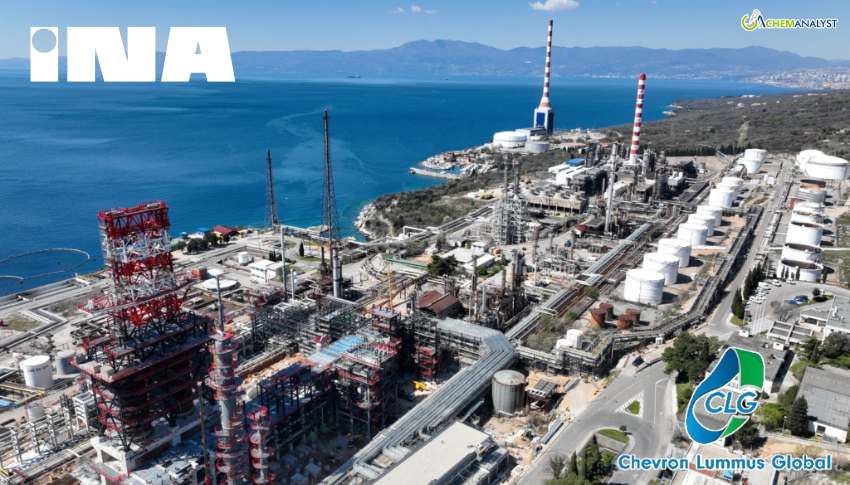Welcome To ChemAnalyst

Chevron Lummus Global (CLG) and INA Group have successfully produced sustainable aviation fuel (SAF) for the first time at INA's Rijeka Refinery in Croatia.
In a landmark achievement for sustainable energy, Chevron Lummus Global (CLG) announced today the successful completion of a commercial test for co-processing biogenic and fossil feedstocks at INA Group’s Rijeka Refinery. This pivotal endeavor has resulted in the refinery’s inaugural production of sustainable aviation fuel (SAF), alongside hydrotreated vegetable oil (HVO) renewable diesel, marking a significant stride in the global transition towards cleaner fuels.
The successful test, conducted within a CLG-licensed hydrocracking unit, underscores the adaptability of existing refinery infrastructure for producing renewable fuels. This development is particularly crucial as the aviation industry seeks viable pathways to decarbonize and reduce its environmental footprint. The ability to integrate new feedstocks into current operational units offers a cost-effective and efficient solution for increasing SAF production capacity.
"This test-run conducted at INA's hydrocracker unit, along with several other recent tests by CLG licensees, showcase how our technology can be integrated into customers' existing infrastructure to co-process a wide range of feedstocks to produce clean fuels," stated Arun Arora, Chief Technology Officer, Chevron Lummus Global. Arora further emphasized, "The results also underscore the flexibility and scalability of our technologies and how they help customers maximize the value of their assets while achieving their sustainability goals." His comments highlight CLG's commitment to fostering innovation that supports both economic viability and environmental responsibility.
The testing phase involved the co-processing of 1,000 tonnes of 5% palm oil mill effluent (POME) feedstock, a biogenic material, alongside conventional fossil-based feedstocks. The rigorous process and the resulting biofuels were meticulously certified by Bureau Veritas d.o.o., an independent certification body, in strict adherence to the International Sustainability and Carbon Certification (ISCC) standard for sustainable biofuels. This certification provides crucial validation of the sustainability credentials of the produced SAF and renewable diesel.
Prior to the commercial test, CLG and INA engaged in extensive collaboration to overcome the inherent complexities associated with processing a novel feedstock like POME, which possesses distinct physical and chemical properties. This collaborative effort encompassed a wide array of preparatory activities, including the procurement of specialized filters, the adaptation of existing laboratory methodologies, and crucial modifications to enhance the capacity of both the hydrocracking and vacuum distillation units. Furthermore, meticulous attention was paid to ensuring the controlled and safe handling of the biogenic feedstock within the refinery's existing operational parameters.
Looking ahead, INA has articulated ambitious plans to complete all necessary preparatory activities, aiming to be fully equipped for the continuous market supply of sustainable aviation fuel by 2029.
We use cookies to deliver the best possible experience on our website. To learn more, visit our Privacy Policy. By continuing to use this site or by closing this box, you consent to our use of cookies. More info.
